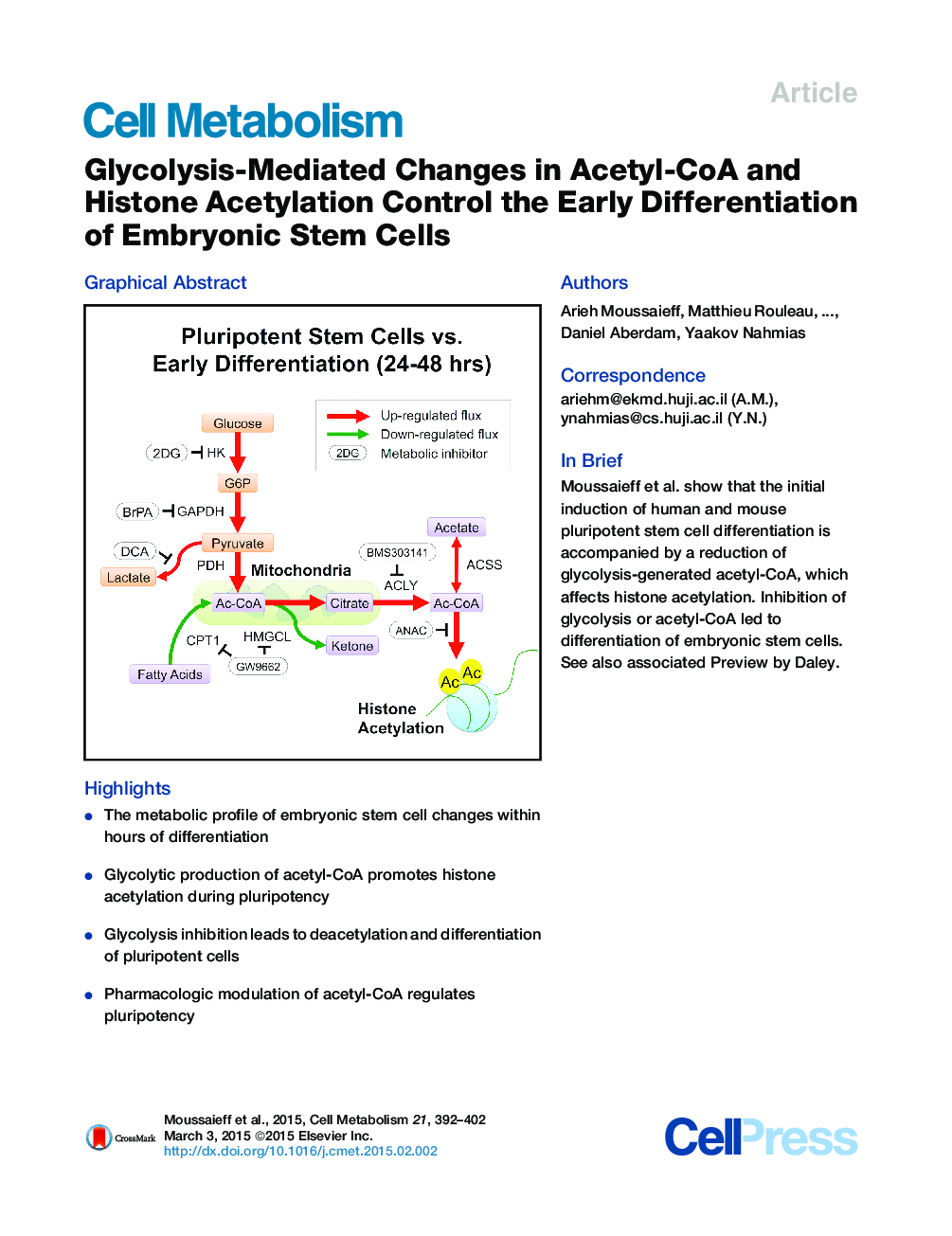| Article ID | Journal | Published Year | Pages | File Type |
|---|---|---|---|---|
| 2792386 | Cell Metabolism | 2015 | 11 Pages |
•The metabolic profile of embryonic stem cell changes within hours of differentiation•Glycolytic production of acetyl-CoA promotes histone acetylation during pluripotency•Glycolysis inhibition leads to deacetylation and differentiation of pluripotent cells•Pharmacologic modulation of acetyl-CoA regulates pluripotency
SummaryLoss of pluripotency is a gradual event whose initiating factors are largely unknown. Here we report the earliest metabolic changes induced during the first hours of differentiation. High-resolution NMR identified 44 metabolites and a distinct metabolic transition occurring during early differentiation. Metabolic and transcriptional analyses showed that pluripotent cells produced acetyl-CoA through glycolysis and rapidly lost this function during differentiation. Importantly, modulation of glycolysis blocked histone deacetylation and differentiation in human and mouse embryonic stem cells. Acetate, a precursor of acetyl-CoA, delayed differentiation and blocked early histone deacetylation in a dose-dependent manner. Inhibitors upstream of acetyl-CoA caused differentiation of pluripotent cells, while those downstream delayed differentiation. Our results show a metabolic switch causing a loss of histone acetylation and pluripotent state during the first hours of differentiation. Our data highlight the important role metabolism plays in pluripotency and suggest that a glycolytic switch controlling histone acetylation can release stem cells from pluripotency.
Graphical AbstractFigure optionsDownload full-size imageDownload high-quality image (214 K)Download as PowerPoint slide
